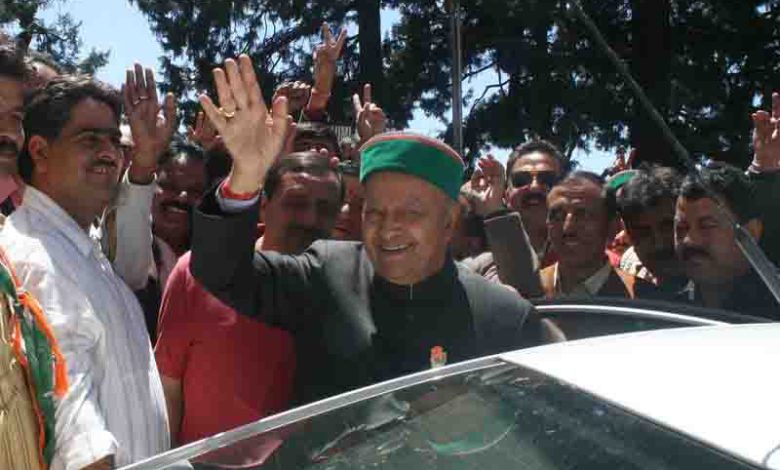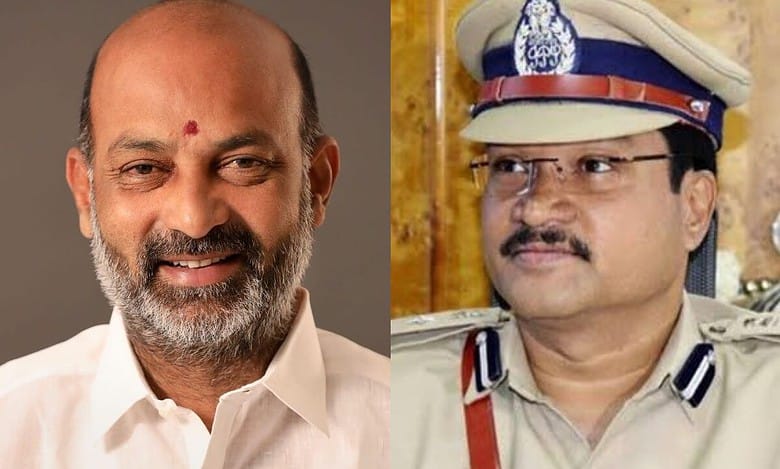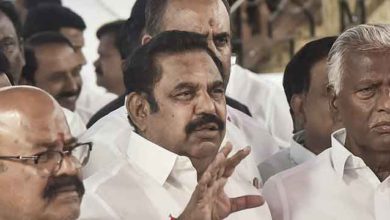Virbhadra Singh: The politician who chose service over spectacle

Himachal Pradesh: Shimla’s historic Ridge will witness a rare tribute on October 13th when a magnificent statue of the late Virbhadra Singh, six-time Chief Minister of Himachal Pradesh, will be unveiled. The ceremony was originally scheduled to be held on his birth anniversary on June 23rd, but was postponed due to unavoidable circumstances. For his admirers, supporters, and family, it marks the fulfillment of a long-cherished dream: to forever imprint his presence in the heart of the capital he served and loved since childhood. Nevertheless, summarizing his political journey is a daunting task. However, one can immediately consider how his ideals stand in stark contrast to today’s sleazy political discourse. Despite his royal lineage and towering stature, he treated every person with respect and dignity. He was accessible to the common man and cared for even the smallest of needs. This humility left a deep impression on me, one that endured even after his tenure. People-Centered Governance
For the citizens of Himachal and those who knew him personally, this moment is both memorable and deeply emotional. Virbhadra Singh epitomized people-centered governance, grounded in humility, accessibility, and a deep commitment to public service. Born into a royal family, he chose democratic participation over privilege, inspired by Gandhian simplicity and an inclusive approach to development. His governance model was not driven by populism, but by a deep understanding of Himachal’s geographical and socio-economic complexities. He invested in health, education, and rural infrastructure not for applause, but because he believed these were the foundation of a just state. Even in heated political battles, he never allowed the discussion to become personal or toxic.
Modern Politics: Quite the Contrary
In today’s political climate, ideals like his are almost extinct. Hyper-nationalism, centralized power, and personality cult have replaced participatory politics and internal democracy. Appearances trump reality, integrity yields to opportunism, and grassroots leaders like him are hard to find. Singh’s legacy today offers a sharp critique of modern politics and a reminder of principled leadership.
Beyond Electoral Arithmetic
Singh’s career cannot be defined solely by electoral arithmetic, though his record is remarkable. He served as Chief Minister for 21 years, ranking alongside Pawan Kumar Chamling, Jyoti Basu, Gegong Apang, and Lal Thanhawla as one of the longest-serving heads of state governments in India. But more than his tenure, it was the character of his politics that stood out.
Early Life and Entry into Politics
Born on June 23, 1934, in Sarahan (Shimla district), Singh received his education at prestigious institutions—Colonel Brown School, Bishop Cotton, and St. Stephen’s College, Delhi. Initially, he aspired to become a professor, not a politician. In 1962, destiny favored him when Lal Bahadur Shastri summoned him to Delhi to meet Prime Minister Nehru. Recalling that day, Singh once said, “I received a call from Shastriji, who said I had to meet Pandit Nehru. I didn’t know what I had done, but I went to Teen Murti Marg, where Indira Gandhi took me to Panditji. He tested my knowledge of Himachal and democracy. The next thing I knew, I got a Lok Sabha ticket and won. I was only 25 years old.”
Governance with Dignity
That unexpected beginning sparked a political revolution that reshaped Himachal. Popularly known as Raja Saheb, Singh never allowed his royal roots to cloud his democratic conduct. He communicated directly with the public, eschewed sycophancy, and maintained decorum even with his opponents. As Chief Minister, he prioritized building roads to remote villages, providing electricity to inaccessible areas, and laying a strong foundation for health and education. His sharp political instincts were always tempered with dignity. In contrast to today’s climate of smear campaigns, Singh never resorted to personal attacks.
Disillusionment with Changing Politics
In his final years, Singh often spoke of his disillusionment with the erosion of values in politics. He lamented how lobbying had eclipsed merit, and convenience had replaced competence. According to him, politics had become degenerate, devoid of ideology and integrity. One of his abiding beliefs was the need to inject new energy into political life. He strongly advocated the inclusion of youth, not merely for show, but to revitalize democracy with fresh ideas and clean intentions. For Singh, age was secondary to passion and principle.
The Enduring Power of Civility
Virbhadra Singh is no more. But the values he stood for—decency in debate, empathy in leadership, and honesty in public life—still have the power to inspire. His legacy is not just one of governance, but also of decency. And in today’s grim political landscape, this is perhaps the most powerful reminder.





